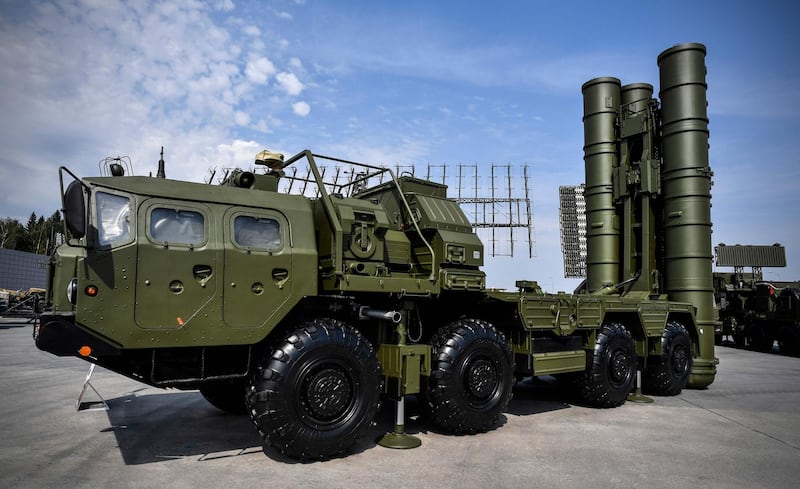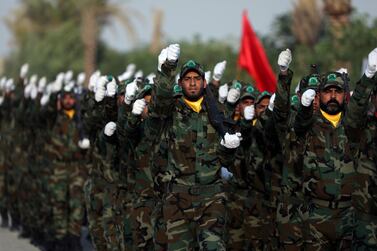A senior leader in Iraq’s paramilitary forces has asked Iran for assistance in buying Russian missiles, reports claim.
Falih Al Fayyadh, Iraq's National Security Adviser, allegedly asked to buy the S-300 or S-400 missiles system during meetings with Russian officials in Moscow last month, Asharq Al Awsat newspaper reported.
Mr Al Fayyadh said that Iran had encouraged him to seek the weapons. No deal has been finalised.
He is chairman of the Popular Mobilisation Forces, also known as Hashed Al Shaabi, which received Iranian training and advice while fighting ISIS in Iraq independently of the US-led coalition.
Several politicians are actively lobbying Parliament to buy the missiles, Iraqi MP Sarkwat Al Shami told The National.
“Individuals who are out of Parliament are lobbying for it but Parliament needs to approve the budget for it, which might be difficult to do now,” Mr Sarkwat said.
Russia has no objection to selling one of the most advanced air defence systems to Iraq, said Husham Al Hashimi, an Iraqi security expert who advises the government.
"Iraq had already reached an agreement with Russia for the purchase of the S-400 system in February 2018, but the US threatened to impose economic sanctions on Baghdad so the deal was dropped," Mr Al Hashimi told The National.
The missile system is designed to destroy aircraft, cruise and ballistic missiles and is capable of engaging targets from a distance of 400 kilometres.
The report follows the announcement by Hashed's deputy commander Abu Mahdi Al Muhandis last week of plans to form its own air force after strikes on militia weapons depots and bases, which it blamed on Israel.
The strikes on PMF targets in western and central Iraq last month led the militias to accuse Washington of assisting Israel and threaten to attack US military bases in retaliation.
Mr Al Fayyadh denied that the PMF was forming its own air force, exposing divisions in the leadership.
This is not the first time the leaders have contradicted each other.
Mr Al Muhandis warned Washington last month that "if war occurs between US and Iran, all Americans in Iraq will be the hostages of the Islamic Resistance".
But Mr Al Fayyadh said his deputy's statement "does not represent the Hashed's official position”.
The Iranian-backed militias formally became part of the Iraqi armed forces in 2016, supposedly reporting to the head of government.
But they have so far failed to obey Prime Minister Adel Abdul Mahdi’s orders to integrate into the army and cut ties with political groups.







